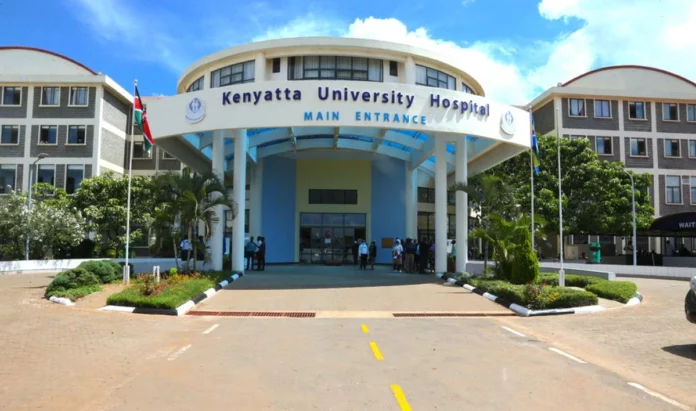In an intriguing twist, Kenyatta University (KU) has launched a fresh bid to reclaim the neighboring teaching hospital that was transformed into an independent parastatal through a legal notice in 2019. Vice Chancellor Prof Paul Wainaina has reached out to President William Ruto, urging him to reconsider the decision and revoke the said legal notice. The move comes as KU’s medical programs face the risk of losing accreditation due to the absence of a teaching hospital.
Prof Wainaina expressed concern that without access to the hospital, KU’s medical programs could suffer in terms of accreditation. He highlighted that during inspections conducted by the East Africa Medical Council and Kenya Medical Practitioners and Dentists Council in 2020, the infrastructure of the Kenyatta University Teaching, Referral and Research Hospital (KUTRRH) was an integral part of the School of Medicine. The current separation between the two institutions creates inconvenience for medical students who have to travel a considerable distance to access suitable training facilities.
While the KUTRRH board, led by academician Prof Olive Mugenda, oversees the hospital’s operations, Prof Wainaina clarified that the hospital was not conceptualized by Prof Mugenda herself but was part of the university’s Master Plan 1990-2020. He mentioned that the National Assembly Committee on Implementation had recommended the restoration of the hospital to KU in their September 2021 report. According to the report, the President was advised to revoke the legal notice and revert KUTRRH to a university hospital within six months of the report’s adoption.
Notably, the decision to establish KUTRRH as a parastatal was made in October 2018, chaired by Health CS Sicily Kariuki and attended by CSs Amina Mohamed (Education) and Henry Rotich (Treasury), along with KU officials led by Prof Wainaina. However, Prof Wainaina lamented that subsequent actions had undermined the initial agreements, with significant policy figures from the university and the Ministry of Health being excluded from the hospital board.
The push for KU’s involvement in the hospital faced opposition last year due to concerns over the university’s financial standing. However, Prof Mugenda had previously explained that making KUTRRH a parastatal allowed for faster and more efficient decision-making. She highlighted the challenges of simultaneously managing a university and a hospital, emphasizing the need for separate boards and management to ensure efficient operations.
As the discussions continue and the fate of the hospital hangs in the balance, the future remains uncertain. Both KU and KUTRRH play crucial roles in healthcare and education, and finding a harmonious solution will be pivotal to ensure quality medical education and research, alongside effective clinical service provision.
